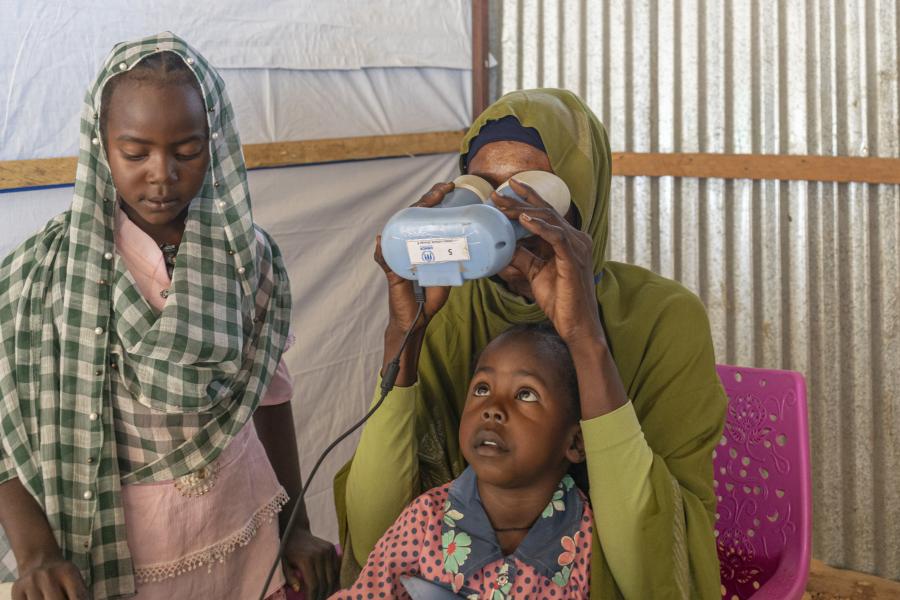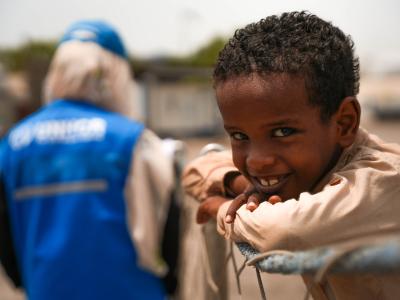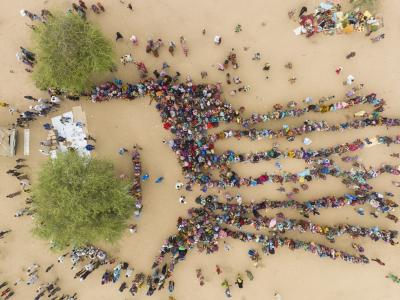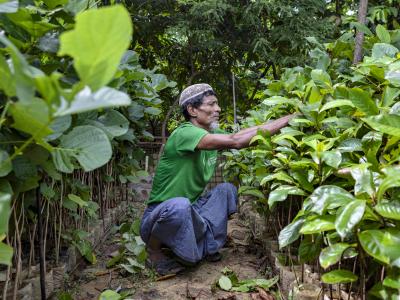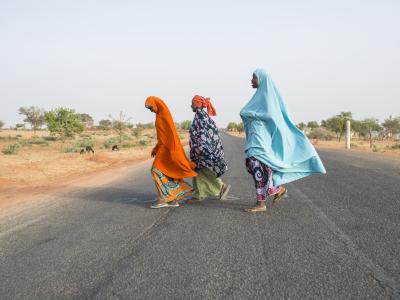Results in 2023
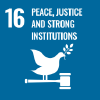
Access to territory, registration, and documentation are essential for refugees and asylum-seekers to obtain international protection and access necessary assistance and services. Nevertheless, certain States endeavour to shift protection obligations onto others, thereby impeding the ability of individuals in transit to find refuge. Instances of reported arbitrary expulsion, violent pushbacks at sea or interceptions make it harder for people to find protection as they violate the principle of non-refoulement and often result in tragic loss of life and suffering.
Once asylum-seekers and refugees have been able to cross an internationally recognized border, asylum registration and documentation are crucial for them to have access to protection and services. While such registration is primarily the responsibility of States, UNHCR often plays a significant operational role. In many countries, UNHCR either fully assumes this responsibility for States when they are unwilling or lack the capacity, or it works with State authorities to jointly carry out these functions. In others, UNHCR plays no role and States have assumed responsibility fully. UNHCR’s ultimate goal is to support States to build their capacity to effectively implement asylum registration procedures, which it did in 2023 by providing capacity development support on all aspects of registration.
In 2023, 89% of all refugees and asylum-seekers were registered on individual basis in the 90 countries where UNHCR operations reported on this indicator. In 2023, 2.55 million individuals were newly registered in UNHCR’s PRIMES registration system in 138 countries, and by the end of the year there were 28.2 million people registered in UNHCR’s PRIMES system, including 17.1 million “active/hold” cases and 11.1 million “inactive/closed”.
As millions fled the fighting in Sudan in 2023, UNHCR undertook registration in extreme and adverse circumstances in Chad, in areas with poor logistics and connectivity, and counted almost half a million Sudanese arrivals by the end of the year. It also registered 200,000 people fleeing into Egypt. By managing to register people with a unique individual record, it ensured that they would be able to obtain protection and assistance and access available solutions.
In the Americas, UNHCR supported the “Safe Mobility” initiative. Operating in parallel with national asylum registration systems, this initiative offered an online portal to migrants and refugees in Colombia, Costa Rica, Ecuador and Guatemala, allowing them to pre-register for solutions and take a questionnaire that directed them to appropriate support from UNHCR or IOM. This initiative served to direct refugees and migrants to lawful pathways to the United States and Canada, enabling them to avoid the risks associated with onward movement, significantly reducing the reliance on perilous journeys often orchestrated by smugglers.
This online portal is precise, cost-effective, fast and far-reaching, allowing beneficiaries in remote locations to find solutions such as family reunification or resettlement. Thus it addresses both the immediate needs and the long-term challenges of global refugee movements.
UNHCR also initiated its “Digital Gateway”, which provides forcibly displaced individuals with remote access to services on one unified platform, the beginning of a shift from in-person services towards more digital services as part of UNHCR’s registration work. In its inaugural year, the initiative served 113,000 people surpassing the target of 75,000.
In 2023, the nationalities accounting for the largest numbers of new registrations were Ukrainians, Sudanese, Venezuelans, South Sudanese, Somalis and Congolese. These made up 68% of all new registrations during the year, and each had over 100,000 new registrations.
The six countries registering most people in 2023 were Ukraine, Egypt, Chad, Uganda, Colombia and Kenya, accounting for 52% of all new registrations during the year, and each country had over 100,000 new registrations.
While registration typically occurs when individuals cross international borders to seek protection, documenting births and ensuring access to civil registration systems for forcibly displaced and stateless persons is another crucial activity once they have reached their host country of asylum.
In 2023, an average of 65% of refugee children under five years old had their birth registered in 68 countries where UNHCR operations reported data, a decline from 73% in 2022. An increase was reported for internally displaced children: in the 14 countries reporting data in 2023, 63% of births for children under five were registered, compared to 46% in 10 countries with data in 2022.
In Pakistan, following sustained advocacy by UNHCR, birth registration services for Afghan refugee children were successfully reinstated, resulting in 31,816 birth certificates being issued. UNHCR also supported Ethiopia’s Bureau of Women's Affairs and Children to ensure the birth registration of 15,181 internally displaced children in 2023, taking the total to 65,892 over the past three years.
In 2023, the proportion of refugees and asylum-seekers with legally recognized identity documents was reported in 79 countries. In 62 of those countries, the large majority (75% and more) of refugees and asylum-seekers had obtained legally recognized identity documents, compared to 56 of the 78 countries reporting data in 2022. UNHCR supported the issuance of identity documents in a wide range of countries, from Afghanistan to Uganda, and in some locations it was fully responsible, giving millions of refugees a vital safeguard of their rights.
A slight increase was also reported for documentation among internally displaced people: in seven out of 12 countries reporting data, the large majority had legal identity documents, compared to four of the 11 countries reporting in 2022.
While data for stateless people remains difficult to obtain, data from 2023 estimates that more than 75% of stateless people possessed legally recognized documents or credentials in 7 out of 15 countries.
Core indicators

1.1 Proportion of refugees and asylum-seekers registered on an individual basis (%)

1.2 Proportion of children under 5 years of age whose births have been registered with a civil authority

1.3 Proportion of people with legally recognized identity documents or credentials
Financial overview
Global expenditure and budget for Access to territory, registration and documentation
$394 million spent against a budget of $805 million
$411 million of unmet needs or 51% of the budget
